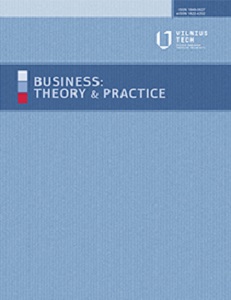Perceived income adequacy, family support, financial anxiety, and tax non-compliance of Indonesian working women during the Covid-19 pandemic
Perceived income adequacy, family support, financial anxiety, and tax non-compliance of Indonesian working women during the Covid-19 pandemic
Author(s): Priandhita Sukowidyanti AsmoroSubject(s): Business Economy / Management, Micro-Economics, Labor relations, Health and medicine and law, Family and social welfare, Public Finances, Fiscal Politics / Budgeting, Socio-Economic Research
Published by: Vilnius Gediminas Technical University
Keywords: perceived income adequacy; family support; financial anxiety; tax non-compliance; working women; Covid-19; conservation of resources theory;
Summary/Abstract: In high-risk situations like the Covid-19 epidemic, it is believed that perceived income adequacy, family support, financial anxiety, and tax non-compliance have a strong relationship. This study applies the Conservation of Resources (COR) theory in building research models to fill gaps in previous research. According to the COR theory, individuals safeguard the quality and quantity of their financial resources by avoiding threats to their existence, including taxes. Thus, maintaining limited financial resources during the Covid-19 pandemic to meet needs and wants leads to tax avoidance. The cross-sectional data were collected using an online survey and analyzed using the PLS-based SEM technique. Purposive sampling was used to identify 371 Indonesian working women for the study sample. The study’s findings confirmed that perceived income adequacy for current needs and wants and perceived family support directly impact financial anxiety. However, this study can only demonstrate the direct effect of perceived income adequacy for current wants and tax non-compliance. Financial anxiety has also been proven to mediate the relationship between the three exogenous factors and tax non-compliance. This study can strengthen the concept of COR theory, which has never been used to investigate tax non-compliance behaviour and can be considered by authorities to design tax policies that take gender into account to achieve tax compliance.
Journal: Verslas: teorija ir praktika
- Issue Year: 24/2023
- Issue No: 1
- Page Range: 123-136
- Page Count: 14
- Language: English

